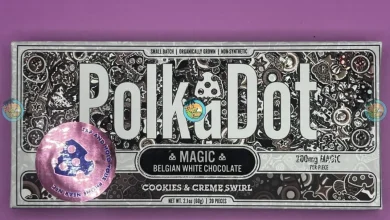The Best Fruit Treats for Rabbits

Fruits can be a delightful and nutritious treat for rabbits, providing a burst of flavor and a variety of vitamins and minerals. However, due to their high sugar content, fruits should be given in moderation. This article explores the best fruit treats for rabbits, how to offer them safely, and the benefits they bring.
The Benefits of Fruit Treats for Rabbits
While fruits should not constitute a significant portion of a rabbit’s diet, they offer several benefits when given as treats:
- Nutritional Value: Fruits are rich in vitamins, minerals, and antioxidants that can supplement your rabbit’s diet.
- Hydration: Many fruits have high water content, helping to keep your rabbit hydrated.
- Enrichment: Introducing new flavors and textures keeps your rabbit mentally stimulated and engaged.
While to be offered in moderation fruits have known benefits as per Benefits of fruits to rabbits described in BunnyVault.com – “Fruits are rich in vitamins such as vitamin C, which supports immune health, and vitamin A, essential for vision and skin health. They also contain antioxidants that help protect cells from damage.”
Best Fruit Treats for Rabbits
When selecting fruit treats for your rabbit, it’s important to choose options that are safe and provide nutritional benefits. Here are some of the best fruit treats for rabbits:
1. Apples
- Benefits: Apples are rich in fiber and vitamin C.
- Feeding Tips: Remove the seeds and core as they contain cyanogenic glycosides, which can be toxic to rabbits. Offer small, bite-sized pieces.
2. Berries
- Types: Strawberries, blueberries, raspberries, and blackberries.
- Benefits: Berries are packed with antioxidants, vitamins, and fiber.
- Feeding Tips: Offer a few berries at a time. Wash thoroughly to remove any pesticides.
3. Bananas
- Benefits: Bananas are high in potassium and fiber.
- Feeding Tips: Due to their high sugar content, give only small slices occasionally.
4. Pineapple
- Benefits: Pineapple contains bromelain, an enzyme that aids digestion.
- Feeding Tips: Remove the skin and core. Offer in small amounts as it is high in sugar.
5. Papaya
- Benefits: Papaya is rich in vitamins A and C, and also contains digestive enzymes.
- Feeding Tips: Remove the seeds and offer in small, manageable pieces.
6. Melons
- Types: Watermelon, cantaloupe, and honeydew.
- Benefits: Melons have high water content, making them hydrating treats.
- Feeding Tips: Remove the seeds and rind. Serve small cubes in moderation.
7. Pears
- Benefits: Pears provide fiber and vitamin C.
- Feeding Tips: Remove the seeds and core. Offer small, thin slices.
8. Peaches
- Benefits: Peaches are rich in vitamins A and C.
- Feeding Tips: Remove the pit and serve in small slices. Wash thoroughly to remove any pesticides.
Guidelines for Feeding Fruit Treats
To ensure fruit treats are safe and beneficial for your rabbit, follow these guidelines:
- Moderation: Fruit treats should not make up more than 5-10% of your rabbit’s diet. Overfeeding fruits can lead to obesity and digestive issues.
- Introduce Gradually: Introduce new fruits slowly to monitor for any adverse reactions or allergies.
- Portion Control: Serve small pieces, about the size of your rabbit’s paw, to prevent overconsumption.
- Freshness: Always offer fresh fruits and avoid dried fruits, which often contain added sugars.
- Cleanliness: Wash fruits thoroughly to remove pesticides and contaminants before serving.
- Variety: Rotate different fruits to provide a range of nutrients and prevent dietary monotony.
Fruits to Avoid
Some fruits are not safe for rabbits and should be avoided:
- Avocado: Contains persin, which is toxic to rabbits.
- Grapes and Raisins: Can cause kidney failure in some animals.
- Citrus Fruits: High acidity can cause digestive upset.
- Rhubarb: Contains oxalic acid, which is toxic to rabbits.




